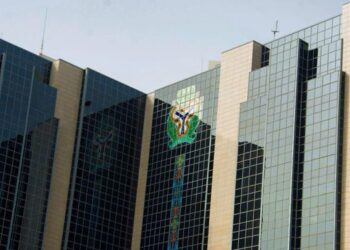Intercity Bank, First Interstate Bank, Tropical Commercial Bank, Pacific Bank Limited, Centre Point Bank, Societe Bancaire, NNB International Bank, Bank of the North, and New Africa Bank; these are all the banks that died for Unity bank, as we know it, to be birthed. In 2006, following a consolidation exercise in 2004, the bank was founded, and it has since become a name in banking that we are all familiar with. Over the past few years, however, a negative string of events have left the bank in a precarious situation, struggling to find its footing.
First on the list of the company’s burdens is its negative shareholders’ fund – a phenomenon caused by higher liabilities than assets. Issues like accumulated losses and large borrowings are some of the things that could lead to this. For three consecutive years between 2017 and 2019, the bank has maintained negative shareholders funds above N250bn annually, signaling major operational instability. The CBN/AMCON is ostensibly why they didn’t go bust. If they pull the plug, the light goes off, but the CBN has “sworn” not to allow any more failed banks.
READ ALSO: Nigerian Treasury Bills falls to 3.75% per annum
Another issue that has plagued the bank is the increased loan to deposit ratio (LDR) of 65% that was set by the Central Bank of Nigeria last year. As of 2018, the company’s LDR was at a significantly weaker 17.8%. It has, however, grown marginally quarterly from 23.7% in Q1 2019 to 29.15% in Q2 2019 and 34.95% in Q3 2019. Even though the rise has been consistent, the CBN with its many levies could make the process to growth even more stressful. With high impairment losses juxtaposed with the current uncertain economic landscape, the odds had been against the bank.
But in a commendable turn of events, owing largely to it being proactive to the point of desperation, the company has taken stringent measures to ensure that its growth is visible enough to potential investor suitors, enough to bag the funds required for recapitalization. One of the first things it did was to cut down its costs. Its 2019 financials reveal a decrease in the bank’s total operating expenses to N19.57 billion in 2019 from N20.71 billion in 2018. In order to expand its business beyond corporate and investment banking activities, it intensified its activities in the Agriculture sector to leverage the growth of the sector as well as the increasing attention of the government in it.
READ MORE: Union Bank Releases 2019 Citizenship, Sustainability and Innovation (CSI) Report
It concluded arrangements to launch a healthcare product known as UnityCares to leverage the credit support intervention scheme for the health sector as put in place by the CBN to support businesses in the healthcare sector; it launched a USSD code in local languages of Yoruba, Hausa, and Igbo, to make the feature more flexible for its customers and heighten competition, and even brought in one of the best audit firms in the game, KPMG, all in a bid to ensure that it is well-positioned to attract the right investors. Critics will say these are attempts to paper over the cracks and meant to give the impression that management is working.
So far, its progress has been visible. The company’s asset base increased from 210 billion to 293 billion, a 39.5% growth, and its PAT soared from a loss of N7.7 billion to a profit of N3.38 billion. Yet, shareholders’ funds further deteriorated in Q1 2020 to a negative of N279.09 billion in Q1 2020. Another notable revelation is that while the bank’s loans to customers increased by 135.93% in 2019, its deposit from customers increased by only 40.63%, begging the question of how it was able to fund the increased lending. It borrowed more. Borrowings jumped by over 45% from N126.21bn in 2018 to N183.3bn in 2019. A bank exists to create loans right?
Download the Nairametrics News App
In a media briefing, Mr. Ebenezer Kolawole, an Executive Director of the bank, explained that the company has commenced negotiations with prospective investors. While the bank is working out diverse ways to become a prospective candidate for investors towards attaining its recapitalization dream, it’s going to need a lot of help for its growth to be attractive enough to achieve its stated objectives. It is unclear how long the CBN can continue to stop the gaping hole in its balance sheet. A stitch in time saves nine.



















Pure water park tire
Fish farming
alihabu382@gmail.com
Have you a Account Number?
Imam itrested
Afternoon sir, i have aplied for Smedan covic19 on january but i don’t receive any thing.
Please helpe me.